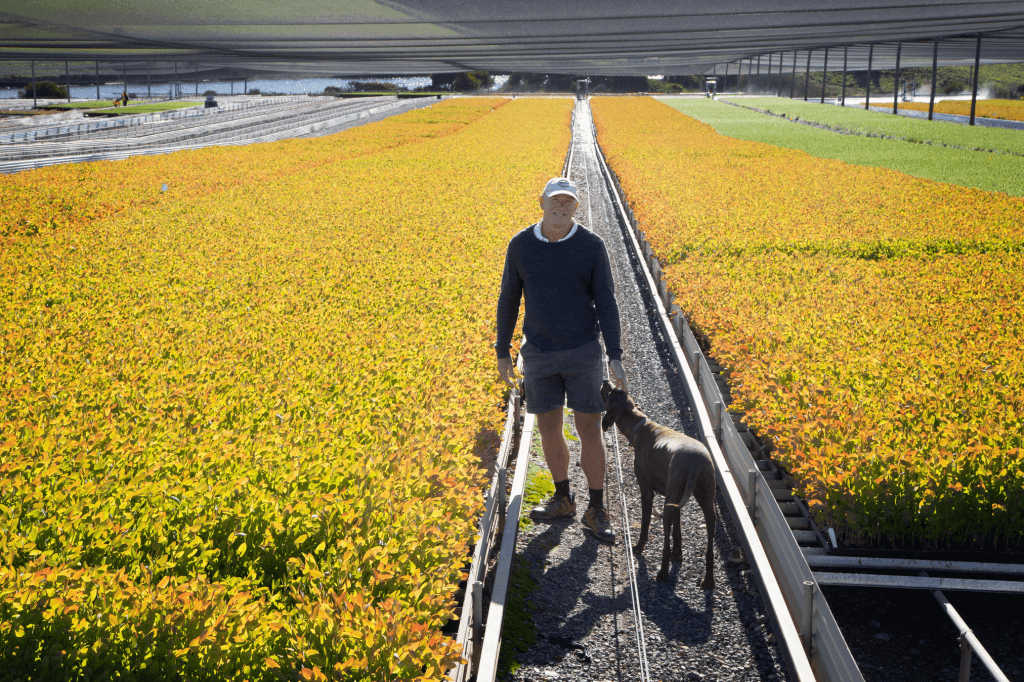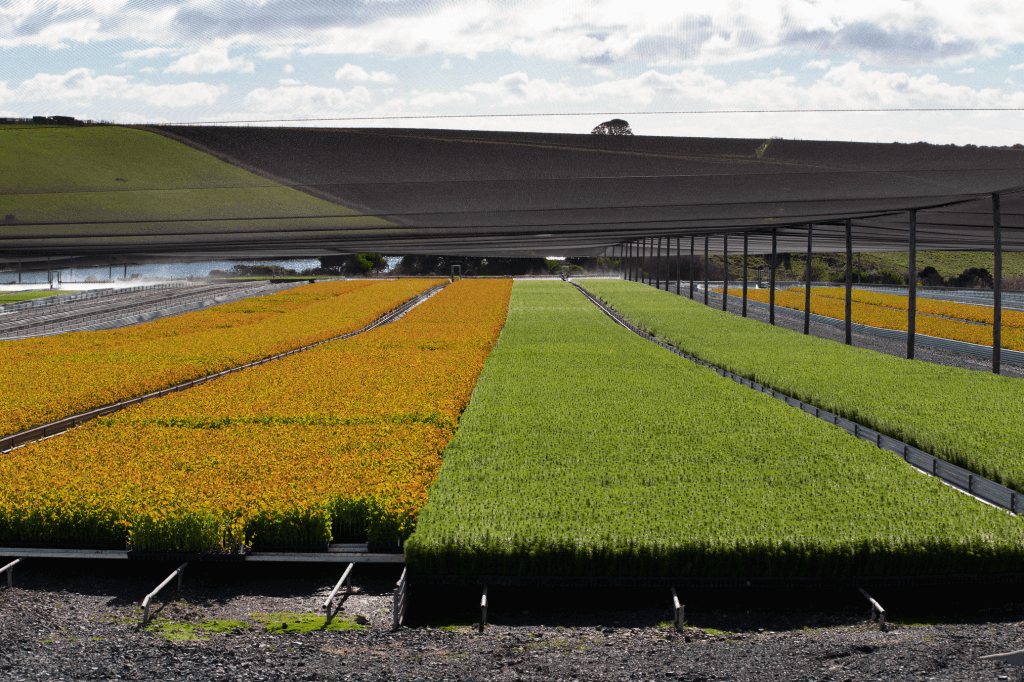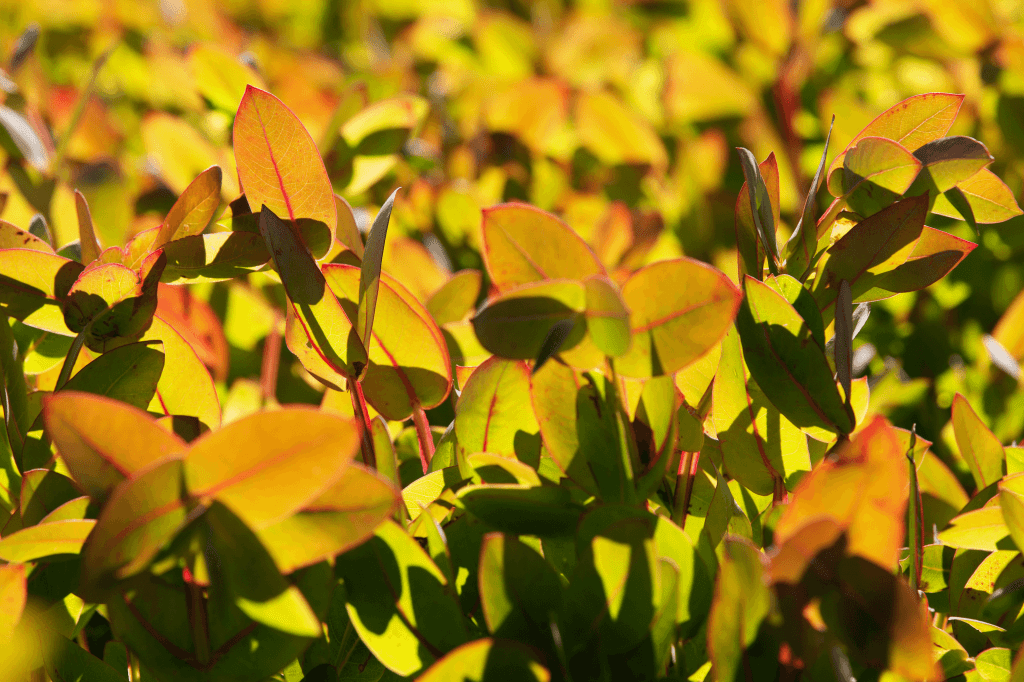The Tasmanian Nursery that’s helping grow the future for Tasmanian farmers
Tasmanian farmers and landowners are steadily seeing the benefits of having trees on their farms and property. From increasing farm productivity to improving water efficiency and water quality to growing high value timber products that are absorbing and then storing carbon, there’s no doubt planting trees is a win–win for landowners and the environment. Tree Alliance caught up with local nurseryman, Stephen Hill of Hills Transplants, who has become a go–to for Tasmanian farmers and landowners ready to put roots in the ground.

Demonstration sites
Last year, in conjunction with the Tree Alliance launch, was the announcement of the seven Tasmanian primary producers due to participate in the Demonstration Sites Project. Co–funded by Tree Alliance, the federal government (through the Smart Farming Grant) and primary producers, $600k in funding was allocated to help develop a landscape–scale best practice integration of shelterbelts and woodlots into the Tasmanian agricultural landscape.
Trees totaling 212 hectares are being planted on seven Tasmanian farms over the next year and preparation for planting for the Demonstration Sites Project has now commenced.
The trees, mostly consisting of Eucalyptus Nitens, Radiata Pine, and Eucalyptus Globulus, will be integrated into farming enterprises that currently include prime lamb, wool, grass seed, cereal grains, forestry, aquaculture, dairy, beef, cropping, seed growing and potential future horticultural crops.

Hills Transplants
Having sought the advice of various forestry experts before undertaking the job of planting, the seven demonstration sites have sourced their seedlings from local experts in seedling growing, Hills Transplants.
With the Hills family in the industry for over 60 years, second generation nurseryman Stephen Hill has helped feed Australia by providing vegetable and fruit seedlings to farms within the state and beyond. Expanding the family business to keep the nursery profitable year–round, Hill invested in hydroponic systems to grow herbs to sell to local supermarkets as well as growing seedlings for the Tasmanian forestry industry.
Hill explains that Hills Transplants can be viewed as the second link in the farm forestry chain.
“Farmers and landowners come to us once they’ve consulted with a forestry expert on what species would be best for their farm and where those species should be planted. After that initial groundwork is laid, we’re the next to call to get your seedlings ordered,” says Hill.

A nurtured journey
The trees planted into the ground eventually grow to be strong, tall and sturdy enough to withstand the harsh Tasmanian climate, but Hill says the journey a seedling takes to become ready to plant into the ground is one of much care and expertise.
“The seeds first go through a priming process which enables the seed to get to the point just before germination. Priming halves the germination period and allows for a unified germination, giving the straggler seeds some time to catch up”.
“Once the seeds are primed, they’re sent to us through a courier which we then have 4–5 days to seed. This is when the seedlings are the most vulnerable and it’s a critical time as a nurseryman to make sure variables are controlled as much as possible.”
“Things like temperature, humidity and moisture have to be carefully observed to keep fungus at bay and give the seeds the best chance to become a strong and robust seedling. They’re carefully nurtured by our team for almost a year before they’re ready to be boxed and dispatched for planting,” says Hill.
Farmers who want to plant large quantities of seeds need to order their seedlings at least a year in advance. This means that planning for planting to determine which species are suitable for the site and how many of each species will be required, needs to commence around 18 months before planting.
The best time for planting in Tasmania is winter.
Going local for seedling sourcing
Reporting that landowners have various reasons for wanting seedlings for their farm or land, Hills says there are benefits from getting seedlings from a local supplier.
“When you buy from a nursery like Hills Transplants, the seedlings have grown here in Tasmania, so they’re used to the local climate Landowners also can avoid paying freight costs when seedlings are purchased locally, says Hill.